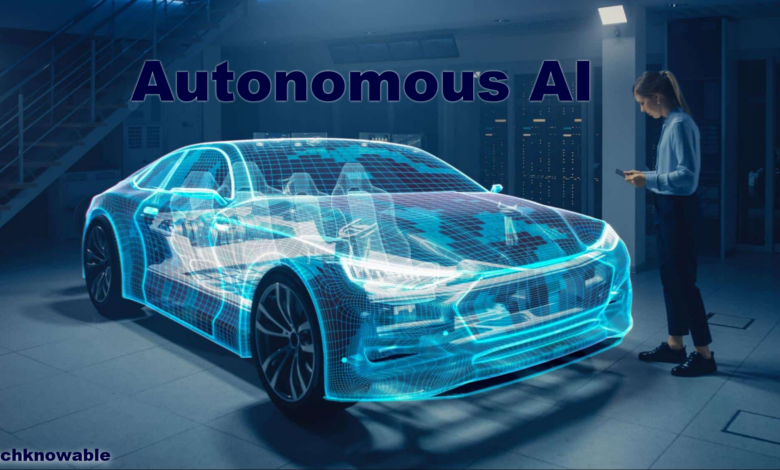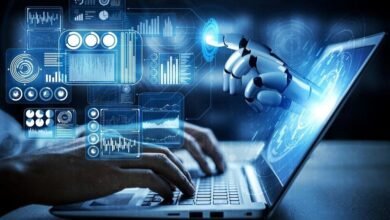The Promise and Perils of Autonomous AI: Navigating the Road Ahead

Autonomous AI, or artificial intelligence that can operate and make decisions without human intervention, is rapidly advancing and transforming various industries. From self-driving cars and drones to healthcare and finance, AI is poised to revolutionize the way we live and work. However, as with any disruptive technology, there are promises and perils that must be carefully navigated.
The Promise of Autonomous AI
The promise of autonomous AI lies in its ability to enhance efficiency, productivity, and safety while reducing costs and human error. In the transportation industry, self-driving cars and trucks have the potential to significantly reduce traffic accidents and improve mobility for people with disabilities or limited access to transportation. In healthcare, AI-powered medical devices and diagnostics can help doctors diagnose diseases and develop personalized treatment plans. In finance, AI can detect fraud and market trends in real-time, helping financial institutions make better investment decisions.
Autonomous AI can also help address global challenges such as climate change, food security, and public health. For instance, autonomous drones can monitor and manage agricultural crops, improving yields and reducing waste. In disaster response, drones and robots can assist in search and rescue missions, reducing the risk to human first responders.
Moreover, autonomous AI can create new job opportunities and unlock economic growth. As AI becomes more prevalent in various industries, there will be a growing demand for skilled workers who can develop, operate, and maintain AI systems.
Read More:The Intersection of AI and Creativity: Exploring the Possibilities and Limitations in 2023
The Perils of Autonomous AI
Despite its promises, autonomous AI also presents significant perils that must be addressed to ensure its safe and ethical use. One of the most pressing concerns is the potential loss of jobs, especially in industries that rely heavily on manual labor. As AI becomes more sophisticated, it may replace human workers in certain roles, creating social and economic challenges. It is important to develop strategies to retrain workers and support them in transitioning to new jobs.
Another concern is the potential for bias and discrimination in AI decision-making. AI systems are only as unbiased as the data they are trained on, and if the data contains bias, the AI system will learn and perpetuate it. This can lead to unfair outcomes for certain groups of people, particularly those who are already marginalized. It is essential to ensure that AI systems are transparent, accountable, and designed to mitigate bias.
There are also concerns around cybersecurity and privacy. Autonomous AI systems collect vast amounts of data, and if this data falls into the wrong hands, it could be used for nefarious purposes such as identity theft, espionage, or blackmail. It is crucial to implement robust cybersecurity measures and ensure that data is collected and used ethically and transparently.
Finally, there is a risk of AI systems being used for harmful purposes, such as autonomous weapons. As AI technology advances, there is a growing concern that it could be used to develop lethal autonomous weapons that could target and kill without human intervention. This poses a serious threat to global security and human rights and requires urgent attention from policymakers and the international community.
Navigating the Road Ahead
To navigate the road ahead, it is crucial to approach autonomous AI with a holistic and interdisciplinary perspective. This includes involving diverse stakeholders such as policymakers, industry leaders, academics, and civil society organizations in the development and deployment of AI systems.
There is a need for ethical frameworks and standards that guide the development and use of autonomous AI. These frameworks should ensure that AI is developed and deployed in a way that is transparent, accountable, and aligned with social and ethical values. They should also address issues such as bias, privacy, and cybersecurity.
Additionally, there is a need for ongoing dialogue and collaboration between different stakeholders to address the challenges and opportunities presented by autonomous AI. This includes building trust and understanding between different groups, sharing knowledge and expertise, and engaging in responsible innovation.
Read more:The Advancement of 5G Technology: Impacts on Communication and Connectivity
Conclusion:
autonomous AI presents both promises and perils that must be carefully navigated to ensure its safe and ethical use. While the potential benefits of autonomous AI are significant, there are also risks that must be addressed, such as job displacement, bias, cybersecurity, and the development of autonomous weapons. To navigate the road ahead, it is essential to approach autonomous AI with a holistic and interdisciplinary perspective, involving diverse stakeholders in the development and deployment of AI systems, and creating ethical frameworks and standards that guide their use. With responsible innovation and ongoing dialogue, we can unlock the potential of autonomous AI while ensuring its benefits are shared equitably and its risks are minimized











